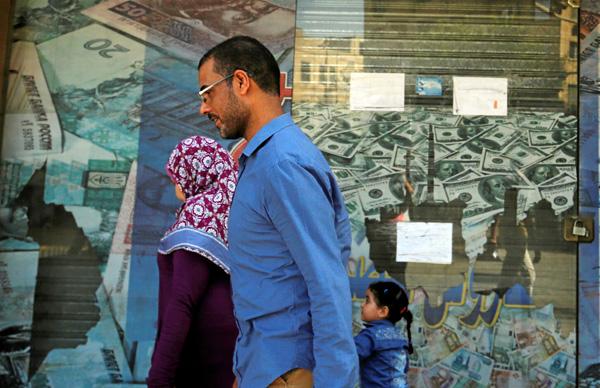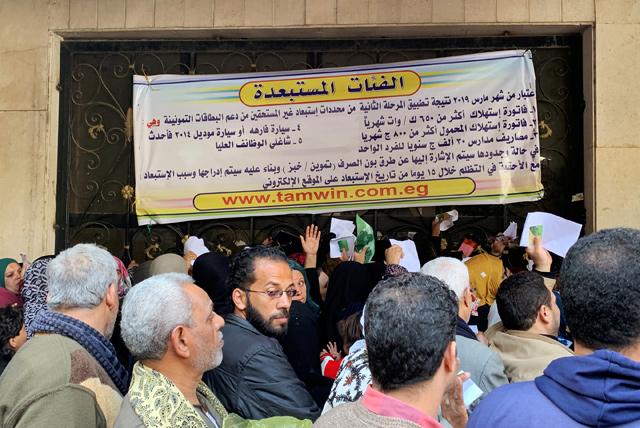You are here
Egypt battles energy crunch with ban on too-cold air conditioners
By Reuters - Apr 14,2014 - Last updated at Apr 14,2014
CAIRO — Egypt, grappling with an energy crunch, will enforce a ban on the production and import of air conditioners that can be set lower than 20oC, aiming to reassure citizens and industry hit with power cuts and fuel shortages.
The failure of successive governments in Cairo to develop sound energy policies has discouraged foreign companies from tapping gas reserves needed to meet increasing consumption in the most populous Arab country.
Power generation in Egypt is largely dependent on natural gas, now in short supply. The government predicts production will fail to meet surging domestic demand in the next fiscal year, starting in July.
Trade, Industry and Investment Minister Mounir Fakhry Abdel Nour cast the restrictions on air conditioners as a part of the government plan to cut energy use in order to ease the worsening crisis in the sector.
The decision was taken last year but will be implemented starting mid-June, Abdel Nour said in a statement.
The ban on air conditioners outside the government's specification will contribute to "easing the burden on Egyptian families," the minister added.
Egypt will hold presidential elections late next month, just before the hot summer months when air conditioners are cranked up, adding pressure to an already stretched electricity grid.
Chaos in the politically sensitive energy sector, currently kept afloat by petroleum product handouts from Gulf Arab countries, will be among the biggest challenges facing the country's next president.
Long lines at gas stations and power cuts fuelled popular anger against president Mohamed Morsi ahead of his ouster by the army last summer.
Experts say the energy crunch is worsening and will not be resolved until more gas production comes on-stream, which is dependent on Cairo encouraging large investments. Such long-term policy decisions have been put off repeatedly.
With daily power cuts darkening homes and businesses ahead of the summer, the government is keen to be seen as active in tackling the shortages, though some ministers have acknowledged the problem is insurmountable in the short term.
The electricity minister said on Saturday the government would not be able to prevent power cuts this summer.
Separately, the planning minister said in an interview in Washington that Egypt plans to boost electricity prices for the richest 20 per cent of its citizens before the presidential elections at the end of May, as the country has “no time to waste” in starting reforms.
Ashraf Al Arabi, Egypt's minister of planning and international cooperation, this week said the decision on raising gasoline prices will be taken "very soon”, but declined to provide further details.
Arabi's sense of urgency suggested that for the first time in years, Egypt was on the same page with the International Monetary Fund (IMF), which has long urged the country to push through structural reforms, such as gradually reducing costly subsidies.
After the 2011 uprising that toppled Hosni Mubarak, already high energy subsidy costs ballooned to a fifth of state spending as the Egyptian pound plunged, making imports more expensive.
Egypt's finance minister said last month that spending on energy subsidies next year would be 10-12 per cent above the 130 billion Egyptian pounds ($19 billion) budgeted for, unless immediate reforms are made.
"This energy subsidy system is unsustainable; we cannot afford [for] this to continue," Al Arabi said on the sidelines of the IMF-World Bank meetings in Washington.
"We don't have time to waste. ... It's better for Egypt to start some of these measures at least before the presidential election, just to pave the way for the coming president, to make his life easier," he added.
Arabi declined to specify by how much electricity prices would rise, saying the issue was still under negotiation. He also emphasised the price hikes would be gradual, and could take three to five years to implement in full.
He said the government had agreed to allocate at least 15 per cent of its subsidy savings to social programmes and the poor.
"This will benefit the poor, because we will take this from the rich and reallocate it to the poor and social spending," he added. "So I believe we have a good story to tell to the Egyptian people."
Egypt sells many energy products at prices substantially below the cost of production. But one cash-strapped government after another has resisted attacking the wasteful system, fearful that raising fuel prices could spark unrest.
The previous government of Mohamed Morsi was already trying to cut spending to contain a ballooning budget deficit, and was in negotiations with the IMF for a loan programme that would have required Egypt to raise taxes and cut subsidies. But negotiations were never completed before Morsi was toppled last July.
Since then, Egypt has relied on billions of dollars in aid from the Gulf Arab states of Saudi Arabia, United Arab Emirates and Kuwait.
"What I think Egypt should do is use continued Gulf support to create a breathing space, so that reform can be gradual, and you're not forced into abrupt reforms by running out of money," Christopher Jarvis, the IMF's mission chief for Egypt, said in an earlier briefing with reporters. "I think the sooner reform is started, the better. But I see it as a process that will take several years." Arabi said Egypt plans to raise gas prices "very soon", declining to elaborate further.
He said the government will make a bigger push to distribute smart cards for fuel, part of a programme to cut costs for the heavily subsidised commodity by reducing so-called "leakages," or smuggling and selling of gasoline on the black market.
The government in October said it would print five million smart cards to give to motorists, who would use them to buy gasoline and diesel at fuel stations, allowing the government to track and monitor deliveries.
A smart card company contracted for the project alleged earlier this month that the Egyptian government was taking too long to roll out the system.
Arabi said only two million or so cards have been distributed so far, and the government plans to distribute the remaining cards in the next two to three months.
"Once we have this smart card system, we will save at least 15 to 20 per cent on leakages in the system," he remarked.
Egypt on Sunday also said it plans to introduce a smart card system for subsidised bread by July.
Arabi said any of Egypt's presidential candidates would support moving forward on subsidy reforms and other changes to the economy.
"The Egyptian challenges are well known to everybody," he said. "We keep talking about these same problems, at least in the last 30 or 40 years. ... It's time to reform," he concluded.
Related Articles
WASHINGTON — International Monetary Fund (IMF) chief Christine Lagarde said Tuesday she will recommend the institution approve a $12 billion
Egypt will speed up structural economic reforms this year, led by cuts in energy subsidies, regardless of whether it strikes a deal on International Monetary Fund (IMF) financial aid, Finance Minister Hany Kadry Dimian said this week.
CAIRO — Many of the Egyptians crammed into a tent in a Cairo suburb have been told they are about to be kicked off the government's food sub


















